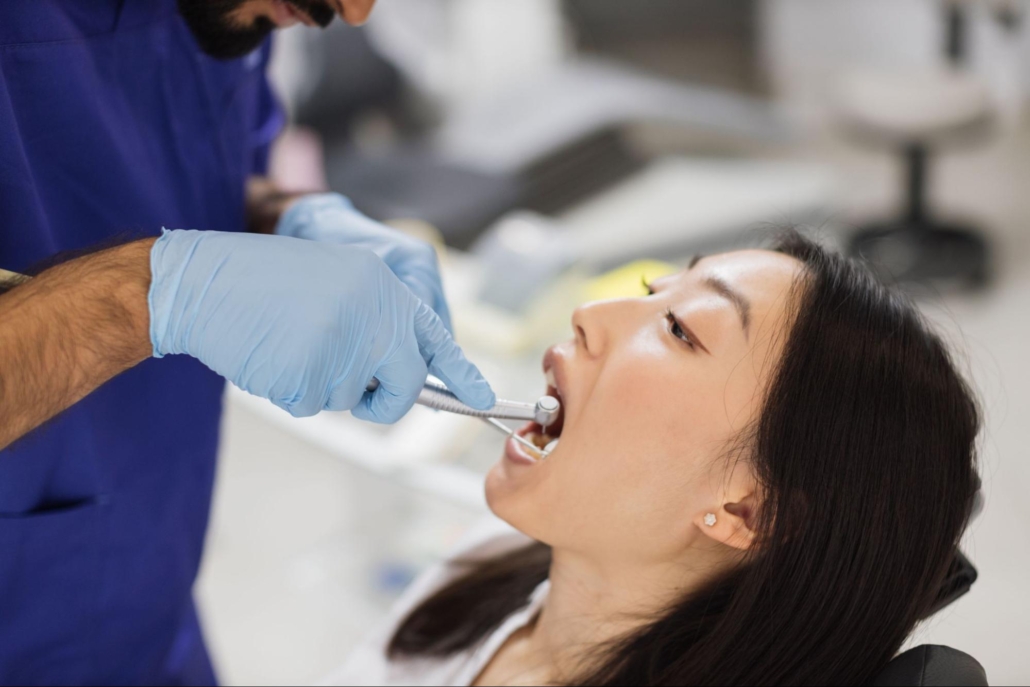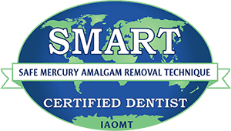The Importance of Regular Teeth Cleanings for Oral Health
Maintaining good oral hygiene is essential for overall health and well-being. To achieve healthy oral hygiene, one of the fundamental oral hygiene practices is regular teeth cleaning. While daily brushing and flossing are crucial, professional teeth cleaning by a dental hygienist is equally essential for preventing dental issues and preserving oral health.
Why Professional Regular Teeth Cleanings Matter
While the daily routine of brushing and flossing plays a crucial role, the professional touch of a dental hygienist is equally essential for safeguarding against dental issues and preserving overall oral well-being.
Here are the significant factors that play a role in why regular teeth cleanings are necessary:
Reducing Dental Issues
Regular teeth cleaning helps prevent common dental issues such as cavities, gum disease, and bad breath. Plaque and tartar buildup can lead to tooth decay and gum inflammation if not removed promptly. Professional cleaning removes these harmful deposits, reducing the risk of dental problems.
Preventing Gum Disease
Gum or periodontal disease is a common oral health condition that can lead to tooth loss if left untreated. To prevent this, allowing a professional to clean your teeth surely removes plaque and tartar along the gumline, preventing the development of gingivitis and more severe forms of gum disease.
Early Detection of Dental Problems
Dental hygienists also thoroughly examine your oral cavity during a teeth cleaning appointment. This allows them to identify any signs of dental issues, such as cavities, gum recession, or oral cancer, early on. Early detection enables prompt treatment, preventing further complications.
Preservation of Enamel
Over time, tartar deposits can wear away your tooth enamel, causing sensitivity and tooth decay. By cleaning your teeth regularly, you can help maintain the integrity of your tooth structure by removing tartar and plaque deposits, keeping your teeth healthy and strong.
Improved Oral Hygiene Habits
Dental hygienists not only clean your teeth but also provide valuable education on proper oral hygiene practices. They offer personalized advice on brushing techniques, flossing methods, and dietary choices to help you maintain optimal oral health between dental visits.
Maintaining Overall Health
Poor oral health has been linked to various systemic health conditions, including heart disease, diabetes, and respiratory infections. However, good oral hygiene through regular teeth cleaning can prevent these health problems and improve overall well-being.
Scheduling an appointment with a professional dentist can help you eliminate plaque, tartar, and gum disease and clean your teeth. Professional teeth cleaning can also help you spot early signs of dental issues and provide you with important information about oral hygiene. Not only does regular teeth cleaning help your oral health, but it can also improve your overall health and well-being.
 Consequences of Neglecting Regular Teeth Cleanings
Consequences of Neglecting Regular Teeth Cleanings
Neglecting regular teeth cleanings can seriously affect general health and oral hygiene and increase the risk of systemic health conditions, which can cause various oral health problems. By understanding the consequences of neglecting regular teeth cleaning, individuals can appreciate the importance of consistent dental care and take proactive steps to maintain optimal oral health.
Increased Risk of Tooth Decay and Cavities
One of the most immediate consequences of neglecting regular teeth cleaning is an increased risk of tooth decay and cavities. Cavities are caused by the acids produced when plaque and tartar buildup on teeth. Cavities can form without adequate plaque removal and cleaning, resulting in pain, discomfort, and the need for dental fillings or other restorative procedures.
Development of Gum Disease
Neglecting regular teeth cleaning can also result in the development of gum disease, a serious oral health condition that affects the gums and supporting structures of the teeth. When tartar and plaque buildup along the gum line, they can lead to infection and inflammation, resulting in gingivitis and, if untreated, periodontitis. Gum swelling and tenderness, bleeding when brushing or flossing, and eventually, tooth loss are all signs of gum disease.
Chronic Bad Breath and Oral Odors
Poor dental hygiene can contribute to bad breath and unpleasant oral odors. When food particles and bacteria build up in the mouth, they produce odorous gasses that lead to halitosis. Bad breath can linger and become a chronic problem without routine teeth cleaning to remove plaque and food particles, affecting social interactions and self-confidence.
Aesthetic Issues Like Discoloration and Staining of Teeth
Neglecting regular teeth cleaning can result in the accumulation of surface stains and discoloration on the teeth. Stains from foods, beverages, tobacco, and coffee can accumulate over time and diminish a smile’s appearance. If these stains are not properly cleaned and maintained, they may become more noticeable, resulting in a dull, discolored smile.
Increased Risk of Systemic Health Conditions
Ignoring routine teeth cleaning can lead to issues with oral health as well as general health and well-being. Poor dental hygiene has been associated with an increased risk of systemic health issues like diabetes, heart disease, respiratory infections, and pregnancy complications. Bacteria from the mouth can enter the bloodstream and contribute to inflammation and infection in other parts of the body, exacerbating existing health issues and increasing the risk of developing new ones.
Financial Costs of Dental Treatment
Neglecting regular teeth cleanings can lead to significant dental treatment costs. Dental implants, periodontal therapy, root canals, fillings, and other costly procedures may be necessary to address preventable oral health issues like cavities, gum disease, and tooth loss. Without regular preventative care, Individuals may face higher dental bills and more invasive treatments to address advanced oral health issues.
Impact on Nutrition and Diet
Oral health problems resulting from neglecting regular teeth cleaning can affect an individual’s ability to chew properly, leading to difficulty eating certain foods. This can impact their nutritional intake and overall diet, potentially compromising their health and well-being.
Adverse Psychological Effects
Poor oral health resulting from neglecting regular teeth cleaning can have adverse psychological effects, including feelings of embarrassment, low self-esteem, and social withdrawal. People may refrain from speaking, smiling, or participating in social situations because they are self-conscious about how their mouths look or smell.
Regular teeth cleanings should be addressed for general health, financial stability, and oral health reasons. By prioritizing regular dental checkups and cleanings, people can safeguard their long-term oral and systemic health, avoid oral health issues, and maintain a healthy smile.
 Ten Teeth Cleaning Practices for Maintaining Oral Health
Ten Teeth Cleaning Practices for Maintaining Oral Health
Cleaning your teeth regularly helps maintain oral health and avoid dental issues like cavities, gum disease, and bad breath. People can enjoy a bright, healthy smile and prolong the life of their teeth and gums by adopting best practices for oral hygiene maintenance. Here are some key strategies for effective teeth cleaning and oral hygiene:
1. Brush Twice Daily
Brushing your teeth at least twice a day, preferably after meals, is crucial for removing plaque and food particles from the teeth and along the gumline. Use a soft-bristled toothbrush and fluoride toothpaste, and brush in gentle, circular motions to clean all surfaces of the teeth thoroughly.
2. Floss Daily
Maintaining dental hygiene requires flossing as much as brushing. In areas where toothbrush bristles might not be able to reach, such as in between teeth and along the gum line, dental floss helps remove plaque and food particles. To prevent bleeding and gum injury, make sure to floss gently.
3. Schedule Regular Dental Checkups
Maintaining oral health requires regular dental examinations and professional cleanings. Make appointments with your dentist at least every six months for cleanings, exams, and preventive care. During these appointments, your dentist can identify potential dental issues early on and offer tailored advice on the best ways to maintain good oral hygiene.
4. Maintain a Healthy Diet
A balanced diet significantly influences oral health. Restrict your intake of acidic and sugary foods and drinks, as they can exacerbate tooth erosion and decay. Opt for a diet high in fruits, vegetables, lean meats, and dairy products to maintain healthy teeth and gums.
5. Stay Hydrated
Drinking plenty of water throughout the day helps keep the mouth hydrated and washes away food particles and bacteria. Aim to drink water after meals and snacks to help neutralize acids and prevent plaque buildup.
6. Avoid Tobacco Products
In addition to raising the risk of gum disease, tooth decay, oral cancer, and foul breath, tobacco use, including smoking and chewing tobacco, can harm oral health. Giving up tobacco use is crucial to preserving good oral health and general well-being.
7. Practice Proper Brushing and Flossing Techniques
Use the proper technique when brushing and flossing to get the most out of the cleaning and to reduce the risk of damaging your teeth and gums. Avoid vigorous scrubbing, which can lead to gum recession and enamel erosion, and instead apply light pressure.
8. Consider Additional Oral Hygiene Tools
In addition to a toothbrush, floss, and mouthwash, consider incorporating additional oral hygiene tools into your routine, such as interdental brushes, tongue scrapers, or water flossers. These tools can help clean hard-to-reach areas and enhance overall oral hygiene.
9. Be Consistent
Consistency is key to maintaining oral health through regular teeth cleaning. Make brushing, flossing, and dental checkups a priority in your daily and monthly routine, and stick to your oral hygiene regimen to achieve long-lasting results.
Adhering to these best practices for maintaining oral health through routine teeth cleaning can effectively prevent dental problems, preserve natural teeth, and enjoy a lifetime of healthy smiles. Prioritizing oral hygiene is essential for overall well-being, and it results in a confident, radiant smile.
Prioritize Regular Teeth Cleanings for Overall Oral Health
Regular teeth cleanings are essential to maintain oral health, preventing dental problems, and protecting your smile and overall health.By making teeth cleaning a non-negotiable aspect of your oral hygiene routine, you fortify your defenses against dental problems, promote fresh breath, and contribute to overall health and vitality. Embrace regular teeth cleaning today to invest in a lifetime of oral wellness and a confident, healthy smile.
Get the latest insights and expert advice on health and wellness by visiting Frederick Dreher DDS PC’s blog–your guide to a healthier life awaits.





Leave a Reply
Want to join the discussion?Feel free to contribute!